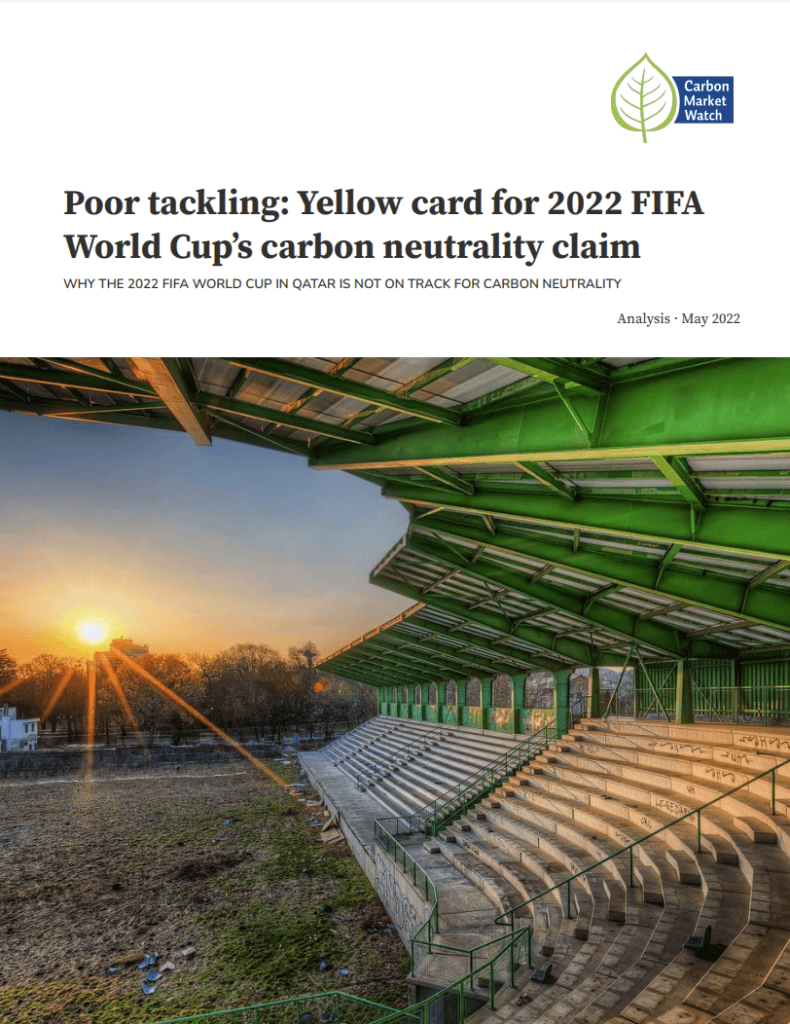The FIFA World Cup in Qatar advertises itself as the first carbon-neutral tournament of its kind. Our latest research casts serious doubt on this claim, suggesting that this goal will be achieved through creative accounting rather than actually reaching a carbon footprint of (net) zero.

Host country Qatar and football’s governing body FIFA are touting the 2022 World Cup, which is due to take place in November, as the first-ever that will be carbon neutral in the tournament’s history.
However, our research reveals that the calculations used to make the event appear to be carbon neutral ignore some major sources of emissions, and the credits currently being purchased to offset them have a low level of environmental integrity, meaning they are unlikely to benefit the climate.
“It would be great to see the climate impact of FIFA World Cups being drastically reduced. But the carbon neutrality claim that is being made is simply not credible,” says Carbon Market Watch’s Gilles Dufrasne, the author of the report. “Despite a lack of transparency, the evidence suggests that the emissions from this World Cup will be considerably higher than expected by the organisers, and the carbon credits being purchased to offset these emissions are unlikely to have a sufficiently positive impact on the climate.”
Carbon football print
One of the main reasons why the Qatar World Cup’s carbon-neutrality claim appears far-fetched is due to the underestimation of the emissions associated with the construction of permanent new stadiums that should be attributed to the tournament, which could be understated by a factor of eight.
Over and above the apparent undercounting of emissions, the quality and environmental integrity of the carbon credits that have so far been announced is questionable. In fact, a new standard was created especially for the tournament, raising questions about the credibility and independence of this certification scheme. Currently registered projects are highly unlikely to generate credits that will effectively counterbalance the tournament’s emissions. Such low-quality credits will not make the World Cup “carbon neutral”.
The report is available for download here.






